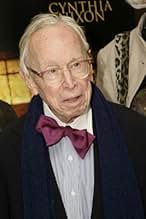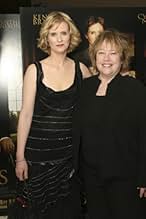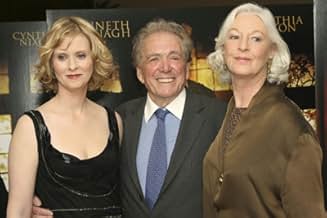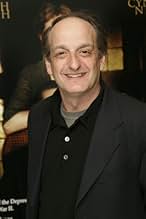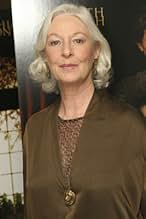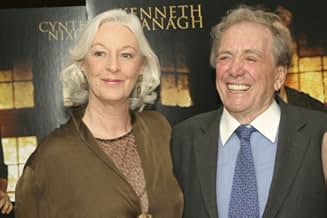NOTE IMDb
7,4/10
3,5 k
MA NOTE
Ajouter une intrigue dans votre langueThe stirring true story of Franklin D. Roosevelt's battle with polio in 1921.The stirring true story of Franklin D. Roosevelt's battle with polio in 1921.The stirring true story of Franklin D. Roosevelt's battle with polio in 1921.
- Réalisation
- Scénario
- Casting principal
- Récompensé par 5 Primetime Emmys
- 12 victoires et 42 nominations au total
Matt O'Leary
- Fred Botts
- (as Matthew O'Leary)
Andy Davoli
- Jake Perini
- (as Andrew Davoli)
Brian F. Durkin
- Elliott Roosevelt
- (as Brian Durkin)
Avis à la une
This is a beautifully acted and directed HBO movie about Franklin Delano Roosevelt's battle with polio, his rehabilitation, and his eventual taking over of the Warm Springs center.
Kenneth Branagh gives a riveting, detailed performance as FDR (leave it to the British to portray our great Americans). One sees a vital man struck down and feels his pain as he struggles to walk again and deal with the ramifications of his illness on his political life.
The film brings to life the prejudice and shunning of the handicapped and the fear people had that they could actually catch polio from another person. It was unheard of for a person of FDR's stature to continue his career once he developed polio. Yet, as we all know, he did, and no one ever called him a cripple.
Cynthia Nixon gives a beautiful portrayal of Eleanor Roosevelt, who, though disillusioned in her marriage, remains a true partner to FDR. Their marriage was much more than one of love or even partnership - her admiration and commitment to this man, and his to her, was very real in spite of their problems.
I highly recommend this very beautifully done film.
Kenneth Branagh gives a riveting, detailed performance as FDR (leave it to the British to portray our great Americans). One sees a vital man struck down and feels his pain as he struggles to walk again and deal with the ramifications of his illness on his political life.
The film brings to life the prejudice and shunning of the handicapped and the fear people had that they could actually catch polio from another person. It was unheard of for a person of FDR's stature to continue his career once he developed polio. Yet, as we all know, he did, and no one ever called him a cripple.
Cynthia Nixon gives a beautiful portrayal of Eleanor Roosevelt, who, though disillusioned in her marriage, remains a true partner to FDR. Their marriage was much more than one of love or even partnership - her admiration and commitment to this man, and his to her, was very real in spite of their problems.
I highly recommend this very beautifully done film.
8=G=
"Warm Springs" is a tour de force by Branagh who portrays FDR as a man of money and privilege who is struck down by polio in the early days of his political career. Unable to use his legs he begins to wallow in self pity until he visits a Georgia mineral water spa called Warm Springs where he finds honesty, compassion, kinship, and most of all himself, his wife, and a new sense of purpose. A very pretty period film with good production value, an excellent supporting cast, and sterling performances by Branagh and Nixon, "Warm Springs" would have made an enjoyable stand alone drama. The fact that it's also a biopic about FDR only serves to make it that much more interesting. Another winner for the whole family from HBO. (B+)
My wife is a polio survivor, and obviously handicapped, from the disease's last American days in the 1950's. I was a little worried about selecting it for our evening viewing because too often movies about a physical or other handicap tend to fall into a mushy wallow of pity and become insulting. Whatever failings this one has as an historical or biographical document, so ably pointed out by my fellow reviewers, it was clear to us that the real topic was his facing, accepting, and surviving polio and then moving on. It did so realistically and with complete grace. The portrayals of paternalism/pity/revulsion shown the handicapped by many and by Franklin himself were spot-on examples of the well-meaning but hurtful attentions that people carrying many different burdens get handed daily. The polio didn't ultimately define FDR-the man, any more than his hair color did but the movie does a wonderful job showing his transition to that realization, and yet never asks us to feel sorry for him.
10arturus
In spite of some liberties being taken with events and personages for dramatic effect, this is a remarkably well-done retelling of the first four years after Franklin Roosevelt was stricken with infantile paralysis.
This version is less sentimental and perhaps more truthful than "Sunrise at Campobello", Dory Shary's play and film, from 1958 and 1960, covering the same events. Perhaps that is because many of the people involved were still living at the time, and the events and personages were still in living memory for so many in the audience for that piece, in 1960.
This version, however, minces no words and does not turn away from the grim reality of all the challenges Franklin faced, emotional and physical, in dealing with his illness. The performances of all involved are excellent. It is a challenge to portray people so well known to so many, and these actors, all of them, shine in their roles.
Central to all of this of course must be the performance of the actor playing FDR. For many, after "Sunrise at Campobello", only Ralph Bellamy could play Roosevelt, and he did it with great panache, even to repeating his performance twice, twenty and thirty years later, in the miniseries "Winds of War" and "War and Remembrance" in the 80s.
Without a doubt Kenneth Branagh gives what must be one of the best performances on film I have ever seen. He never descends to caricature or impersonation, he does not really look like FDR, he only gives suggestions of Franklin's speech rhythms and accent. But this actor inhabits the character as written so completely, with such wide emotional, physical and vocal range that I for one was totally convinced. This is truly a great film performance, worthy of any awards that it gets. And I hope it is recognized.
This version is less sentimental and perhaps more truthful than "Sunrise at Campobello", Dory Shary's play and film, from 1958 and 1960, covering the same events. Perhaps that is because many of the people involved were still living at the time, and the events and personages were still in living memory for so many in the audience for that piece, in 1960.
This version, however, minces no words and does not turn away from the grim reality of all the challenges Franklin faced, emotional and physical, in dealing with his illness. The performances of all involved are excellent. It is a challenge to portray people so well known to so many, and these actors, all of them, shine in their roles.
Central to all of this of course must be the performance of the actor playing FDR. For many, after "Sunrise at Campobello", only Ralph Bellamy could play Roosevelt, and he did it with great panache, even to repeating his performance twice, twenty and thirty years later, in the miniseries "Winds of War" and "War and Remembrance" in the 80s.
Without a doubt Kenneth Branagh gives what must be one of the best performances on film I have ever seen. He never descends to caricature or impersonation, he does not really look like FDR, he only gives suggestions of Franklin's speech rhythms and accent. But this actor inhabits the character as written so completely, with such wide emotional, physical and vocal range that I for one was totally convinced. This is truly a great film performance, worthy of any awards that it gets. And I hope it is recognized.
In this splendid new HBO film about Franklin Delano Roosevelt, his wife Eleanor says to him, "You have done a brilliant thing here, a magnificent thing." She's speaking of his work at Warm Springs, the polio rehabilitation center in Georgia, but the same can be said for Kenneth Branagh's charismatic portrayal of America's almost legendary president, who was elected four times and died in office in 1945. So many fine comments have been made about the film that I won't go over the same ground. It has obviously been created with love and care -- the production values are top notch, the screenplay and direction are strong. The casting could not been better -- there's not a weak performance in it, down to the smallest role. Mr. Branagh leads a superb company which includes Cynthia Nixon, David Paymer, Kathy Bates, Jane Alexander -- I add a special word for Tim Blake Nelson who gives a heartbreaking performance as the manager of Warm Springs. I can't imagine anyone who would fail to enjoy this film. Bravo, HBO!
Le saviez-vous
- AnecdotesMost of the actors and actresses playing disabled people in this movie are actually disabled, including "I Won't Dance" cast member Teal Sherer.
- GaffesIn the opening scene, newsreel from the Democrat National Convention of 1920 shows FDR talking and people cheering as part of the film. Film with sound wasn't invented until 1927, and even then was quite rare until 1930 or 1931.
- Citations
Franklin Delano Roosevelt: [on first arriving at Warm Springs] This place should be condemned!
Tom Loyless: We have seen better times. But then, I imagine, so have you.
- ConnexionsFeatured in Warm Springs: Making of Featurette (2005)
- Bandes originalesI'll See You In My Dreams
Written by Isham Jones and Gus Kahn
Performed by Alice Faye
Courtesy of Twentieth Century Fox Film Corporation
Meilleurs choix
Connectez-vous pour évaluer et suivre la liste de favoris afin de recevoir des recommandations personnalisées
Détails
- Date de sortie
- Pays d’origine
- Sites officiels
- Langues
- Aussi connu sous le nom de
- Warm Springs
- Lieux de tournage
- Summerville, Géorgie, États-Unis(train depot)
- Sociétés de production
- Voir plus de crédits d'entreprise sur IMDbPro
Box-office
- Budget
- 13 000 000 $US (estimé)
- Durée
- 2h 1min(121 min)
- Couleur
- Rapport de forme
- 1.78 : 1
Contribuer à cette page
Suggérer une modification ou ajouter du contenu manquant


